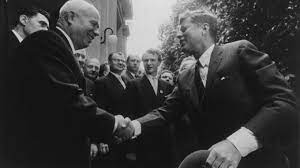In October 1962, the world stood on the brink of nuclear war as the United States and the Soviet Union faced off over Soviet missile installations in Cuba. John F. Kennedy's leadership during this crisis is widely regarded as a masterful display of diplomacy and crisis management.
Kennedy's response to the crisis was measured and strategic. He imposed a naval quarantine around Cuba to prevent the delivery of Soviet missiles, but he also made clear that the United States was not seeking war. He engaged in secret negotiations with Soviet Premier Nikita Khrushchev to find a peaceful solution to the crisis.
Ultimately, Kennedy's leadership and diplomacy averted a potential nuclear catastrophe and brought the world back from the brink of war. His handling of the crisis is widely regarded as a model of leadership and a testament to the power of diplomacy in resolving even the most dangerous conflicts.
Works Cited:
Allison, Graham T. Essence of Decision: Explaining the Cuban Missile Crisis. Pearson, 1999.
Blight, James G., et al. The Cuban Missile Crisis Revisited. Routledge, 2012.
Fursenko, Aleksandr, and Timothy Naftali. “One Hell of a Gamble”: Khrushchev, Castro, and Kennedy, 1958-1964. W.W. Norton Company, 1997.







